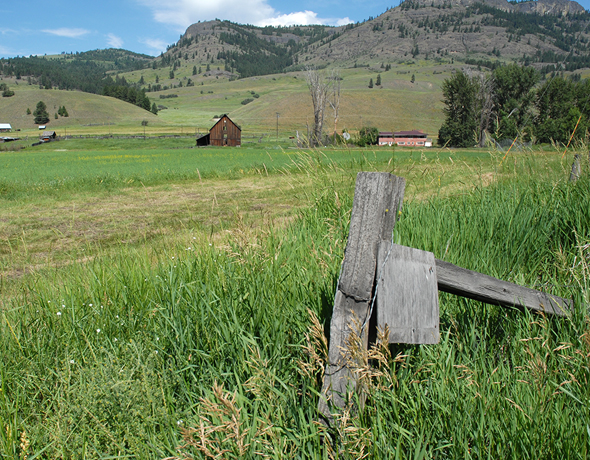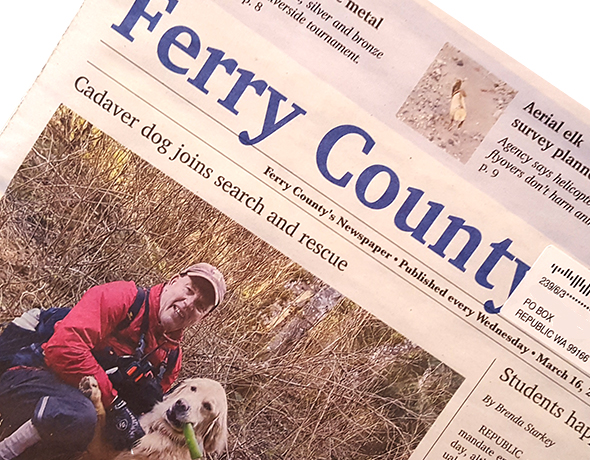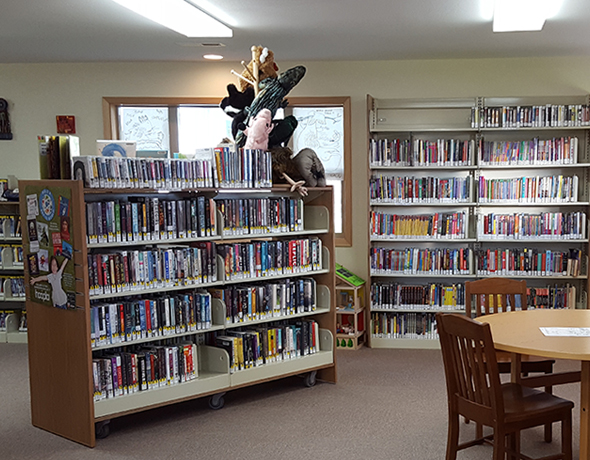Building a Home or Cabin in Ferry County
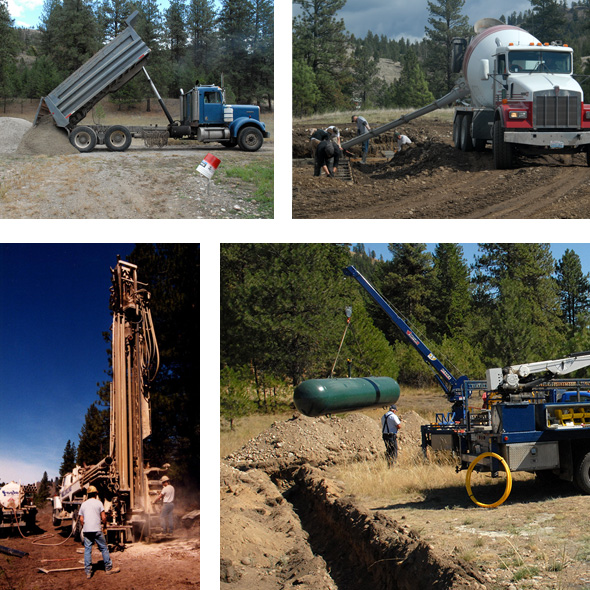
Wells and Water
If the property you are considering doesn’t have an existing well or potable water access, then you’re looking at a potentially expensive unknown. Ask your realtor or check with neighboring property owners to learn the depth and flow (gallons per minute) of nearby wells to get a better understanding of your odds of finding water or how much water you can plan on. Check into local well drilling costs. Typical well drilling runs from $25 to $35 per foot or more, plus set up fees, and additional costs for pump and pump controls, a vault or pump house, and so on. Wells can run from 50 feet to 1000 feet in depth or more and there is no guarantee you’ll hit water, so plan accordingly.
Electricity
When land doesn’t have electricity installed, check to see how far it is to the nearest power source and what it will take to bring power to the property. You’ll pay by the foot to bring power to your land. If bringing electricity to your home requires crossing your land, you will need to consider whether to run overhead or underground lines. Don’t forget that, depending on where you place them, installing overhead lines can reduce the value of your property.
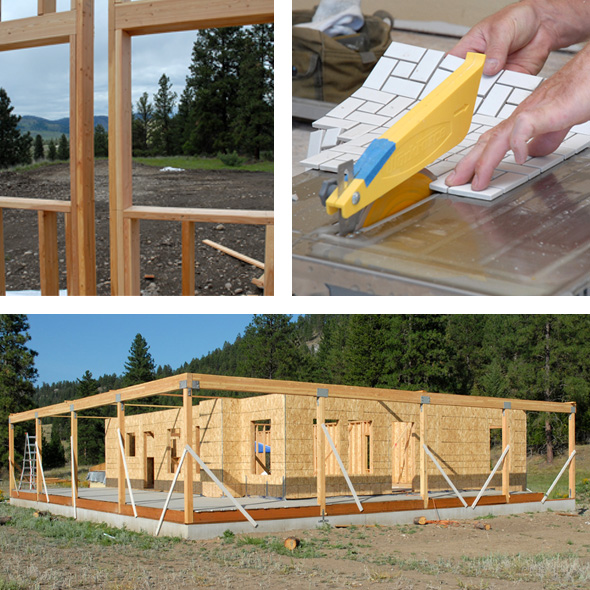
Phone Lines
Phone lines raise issues like those associated with electricity. If possible, it makes good financial sense to bring phone and electricity in at the same time as much of the work and cost can be shared, particularly if you’ll be digging a ditch to bury your electricity underground.
Site Placement
When planning the placement of your home, be certain to visit the property during different times of the day and note how the extremes of sun or shade will affect your building plans. Consider whether your bedroom or living room windows will be drenched with sun in the morning or evening. A sunset view may seem romantic, but the late afternoon sun will also bake the interior of your home at the close of every day. This isn’t a reason to avoid buying a western-facing view home…but recognizing the potential issue will allow you to minimize its affects when looking to buy an existing house or during the design phase of home building.
Often overlooked is the weather in the area. How hot is it in the summer or cold in the winter? Will your home always be exposed to the sun, or will it always be shaded? Will your land enjoy light breezes or steady gale-force winds? A friend of mine wound up selling his retirement home in Western Washington, because the wind in the area never let up and it made it nearly impossible for him to get any outdoor projects done or enjoy a relaxing moment on his deck.
Considerations When Building or Buying a Home
Communal Water
If the house or property you’re thinking about buying has water, but its source is communal, make sure you understand and agree to the terms and conditions of its use. Some community agreements have myriad rules and restrictions, so read contracts carefully and ask questions if something is not clear.
Access to Your Home or Land
Don’t dismiss the effort it takes to access your property. Steep or winding dirt roads can seem easy to traverse in the summer, but become difficult or treacherous when covered with winter snow or ice. Also, consider what it will take to get large trucks (for wells and construction) up the road to the property. Roadwork can be expensive and, in some areas, restricted. Fortunately, rural builders and contractors are typically more comfortable delivering supplies to out-of-the-way building sites.
If the drive or road to the property is shared with your neighbors (see Easements) make sure its legal description is clear and that you understand and agree with the terms. Ask how often the roads are improved or maintained and, if there’s a cost, how much you’ll be expected to shoulder of the road you’ll be expected to pay for. If you’ll be dealing with snowy conditions, remember to ask if your road is plowed regularly, and if so, by whom and whether there there’s a cost involved.
Easements
Always check for easements and land use restrictions BEFORE you buy. Insist on seeing the plot plan or plat. If the realtor you are working with can’t provide you with this information, the local planning department will help you. Be aware that easements can involve more than a road or driveway through your property. There are also utility easements for power or telephone lines or buried gas or water pipes. One particularly nice view lot we considered buying was crisscrossed by four utility easements, which effectively eliminated any viable building site. Another potential problem with an easement is installing fencing. Some easements do not allow you to close off roads or driveways with a gate, or do not allow the gate to be closed or locked. This is a major concern if you plan to have animals on your property so pay particular attention to any easements listed on the property you are considering.
The Surrounding Neighborhood
If the land surrounding your property is open or undeveloped, consider how it will be developed years from now or how it will affect your property values, views, etc. Factor the possibilities in your plans.
To make certain your home will have quiet, privacy, or quality most important to you, consider your future neighbors. Everyone’s idea of recreation is different and may not fit with yours. No one wants to spend lots of money on a home or cabin, only to end up next to neighbors who raise early-rising roosters or who run an amateur motocross course on their land. Find out what the zoning allows in your area.
Sun, Shade, and Weather
Before you build or buy, consider how your expectations for your future home are supported by the layout and location of the land. First, walk the property. The larger the property the more important this becomes. This allows you to get a better feel for the place, check for suitable building sites, and see what borders the property. Check for problems like standing water or wet areas, old or unused septic systems, water erosion, or areas where hillsides have slid, and so on. Be aware of neighbors who may be using the property for storing, dumping, or road access to their own property without asking for an easement. Look for well-worn roads, trails or paths that don’t appear to be part of the property. All these can lead to bigger problems if not understood or planned for. Sometimes if the problem is severe, it can make the property worth avoiding.
Financing
Getting financing for raw or recreational property is generally more difficult than home financing in that it requires larger down payments and higher interest rates. Fewer lenders are willing to give you loans on raw property. This is why you see “owner will finance or carry” on many advertisements for undeveloped properties. Most owner-financing arrangements are advantageous for both owner and buyer, but always be mindful of the terms of the contract.
Legal Advice
If there are easements or communal services involved in the purchase of your property, I’d recommend you spend some time with an independent real estate lawyer to review the contract. A few bucks spent with a lawyer could save you major headaches and money in the future.
Building Permits
Every big city dweller I know, who’s tried to build or modify a home, has a tale of woe to tell about unhelpful, urban planning departments and arbitrary permitting processes. Speaking from experience, the folks at the Ferry County Planning Department are a pleasure to work with. They’re up to date on current building practices, willing to provide good advice, and easy to work with when scheduling inspections.
Where to start
Typically, the first step in finding the ideal vacation or retirement home is to form a good relationship with an area realtor who understands your goals and won’t waste your time asking you to drive or fly in to see land or homes that don’t fit your needs or budget. They will be able to recommend local contractors, electricians, well drilling companies, etc. But, do not depend on a realtor to point out every flaw in the property they’re showing you. Remember, a realtor works for the owner of the property, not for you (unless you contract with them to do so), so do your own due diligence!
Building a Home or Cabin
For more tips and traps about building or choosing a home in rural Ferry County, WA, visit the Ferry County Commissioners’ website and read, “Ferry County Code of the West: A few things to consider when moving into rural areas in Ferry County.” April 16, 2012.
Acknowledgements and Disclaimer
Article by Craig Lawrence, published on November 25, 2008. Neither FerryCounty.com or Craig Lawrence make any claims as to the accuracy of his observations. He is sharing personal information that he gathered while building his own home. Copyright 2008 Ferrycounty.com. All rights reserved.
